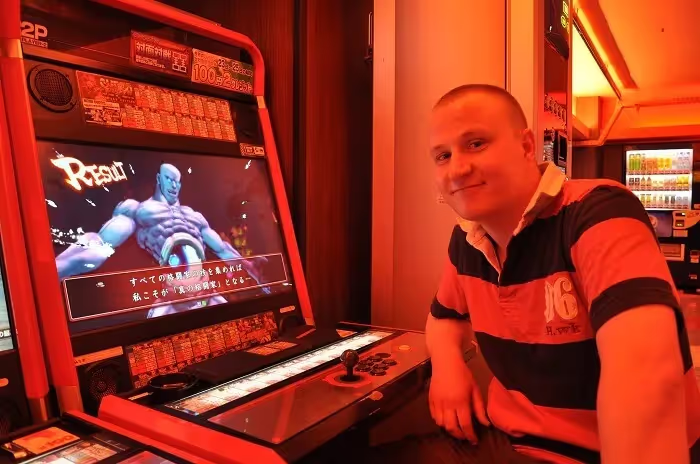Conclusion One: Developers do reflect and they do make mistakes
Assassin’s Creed is a series I have incredibly fond memories of over the years since I first played as Ezio in 2009’s Assassin’s Creed II. The third game was a mixed bag in my opinion. It began brightly and got bigger and bigger, looking to all the world like Ubisoft was going for Grand Theft Auto in colonial America. It tried everything, and perhaps under that stress was always going to fall a little short by the end game. It didn’t help that Connor was perhaps the least fun Assassin we’ve had the opportunity to play as, nor the fact that the conclusion of Desmond’s story was rather awful — then, and now looking back.
It’s not just gamers ourselves who recognise that a game that’s gone gold is perhaps not everything iot could or should have been. After enough time has passed it might be easier to objectively look upon it and think about what did, or didn’t work, and in the case of Alex Hutchinson, the Creative Director of AC3, that’s certainly true based on his Twitter thread he posted earlier this week.

Some of it would have tempered a lot of the criticism levelled at it in 2012 — the lack of humour apparent around Connor, for instance. Some of it shows a pretty stark change in the way of thinking when you move from letting folks play at their pace, to forcing certain things at certain times to get the key messages across. There’s lots to it.
Whatever your take on the game as it is, and how it perhaps could have been had Hutchinson had these reflections during the development, it’s exciting to see it written down that creatives do make choices and that these choices aren’t always right. It’s how things should be. Everyone wants to make the best things and play the best things and sometimes this doesn’t happen. Recognising that, and making the next thing that much better as a result is only good.
Conclusion Two: Game development is part of real life
Too often we as gamers think about our hobby as something purely for us, and a great many people share their thoughts, likes and dislikes in a myriad of ways online and offline. Sometimes this can be positive, other times it can't. Whilst the ability to share our thoughts is important, what we should do regularly is take a step back and remind ourselves that games and the game makers are real. People put their heart and soul into making a game as good as they can. It might not always work for a number of reasons, but they try.

The reason I bring this up is because of the recent news that Nobuo Uematsu, composer of music for Final Fantasy and other games published by Square Enix, is taking a break from work and the gaming industry. He just can't keep going the way he is, and so instead he's taking a break from gaming for the rest of the year and perhaps more.
Whilst not anything new, it does remind me that gaming might be the thing we do in our spare time, and writing reviews or commenting otherwise is something we at Jump Dash Roll do, as well as the majority of players across the world. But at the end of the day those games come from real people like us and we must remember that and understand when they need that holiday, extended break or anything else.
Conclusion Three: Handheld gaming is truly owned by Nintendo
We already know that handheld gaming is owned by Nintendo. It always has been. From Game and Watch to the Gameboy, through the GBA Advance, DS and 3DS, all the way to the Switch itself, Nintendo handhelds have outperformed any competition for one or many reasons. The Gameboy beat the technically superior Lynx and Game Gear due to battery life; the 3DS beat the techn ically superior PS Vita due to price point and software, among other reasons.

The reason why we feel it’s important to state that Nintendo owns handheld gaming again is because we got news this week that the delightfully powerful Sony handheld, with the wonderful (original) screen will cease production in 2019, according to Famitsu via Gematsu.. Unsurprisingly there will be no successor, but at least now we have that on record.
Nintendo had the market sewn up anyway, has taken steps to combat mobile gaming threats and with the Switch has changed the game anyway. When you can play the exact same delights out and about as you do on the sofa, why would you want or need anything else?
Conclusion Four: Google won’t win gaming
Google is somewhat large, isn’t it? It still won’t ever win gaming though. It just doesn’t seem to be able to work out how to enter the market at a suitable level, nor grow beyond that to become a behemoth in the gaming fraternity as it is in the world of so many other tech categories.
In 2015 — leveraging the de facto number one online video site, YouTube, Google launched YouTube Gaming. Effectively a Twitch competitor, it needed to play catch-up but of course had that sizeable brand awareness and readied audience. It was bound to succeed and become the number one de factor gaming stream provider.

Or not. YouTube Gaming is no more. It didn’t take off, it didn’t work and fundamentally Google has given up. They’ve got other things cooking in the world of gaming but the company doesn’t seem to have a clear strategic vision. Gaming is something it would like to be in, not that it will be in or has to be in. WIthout true focus, persistent resource and long-term planning, what hope is there when the aim would be to go big or go home? That’s why Google has gone home now, and will again.
Conclusion Five: Capcom reverse their Western plans
A number of years back the japanese gaming industry seemed to be getting overrun by Western games from Western developers. Capcom decided to combat this by developing games with a more Western feel and style. Things like the DMC from Ninja Theory was aimed at fixing this perceived problem, as were game series like Dead Rising, which in latter years has been developed by Capcom Vancouver.
.png)
Capcom Vancouver was working on Dead Rising 5 but not anymore. It’s been shut down, with that particular series’ future as yet unknown. With this, the decision to limit or eliminate outsourcing of IP to third-parties to develop — because the quality has been low or performance hasn’t matched expectations — and the fact that Monster Hunter: World has just behaved like a behemoth this year, perhaps Capcom is reversing it’s decision to go more Western because the reality is in fact that Japanese games if done as well as Capcom does them, will succeed regardless.
You can subscribe to Jump Chat Roll on your favourite podcast players including:
Let us know in the comments if you enjoyed this podcast, and if there are any topics you'd like to hear us tackle in future episodes!



